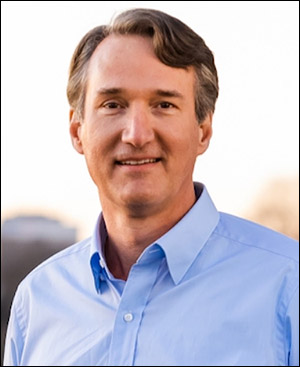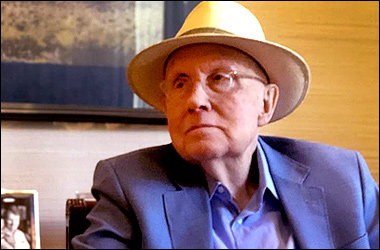By Jim Ellis — Thursday, June 25, 2024
President

Vice President Kamala Harris / Photo by Gage Skidmore
The voting period will occur over multiple days culminating with an Aug. 7 deadline — or 12 days before the Democratic National Convention officially convenes in Chicago. At this point, it appears that Harris will easily secure the first ballot nomination and end speculation of another potential candidate arriving to claim support from a delegate majority.
The early vote allows the Democratic leadership to avoid an open convention that could bring chaos, gives the Harris campaign an additional two weeks of general election campaigning, and allows them to make the convention a unifying event.
Trump Pollster: Predicting a Harris Bump — Trump for President pollster Tony Fabrizio yesterday issued a public letter predicting that Vice President Harris will see a bump in national polling because of her “honeymoon” with the institutional media and Democratic rank and file. He also predicted the polling would eventually return to the earlier pattern that posted former President Donald Trump to consistent small leads.
In the past two days, we have seen three national polls released, which include the Independent and minor party candidates:
- RMG Research (July 22-23; 2,000 registered US voters; online) sees Trump holding a two point, 48-46 percent, edge over Harris.
- Ipsos/Reuters, polling over the same period (July 22-23; 1,018 registered US voters; online) finds a different result, posting Harris over Trump with a four-point, 42-38 percent spread.
- YouGov polling for The Economist publication (July 21-23; 1,435 registered US voters; online) sees a tally closer to RMG: Trump leading Harris, 44-41 percent.
We can expect to see close but inconsistent polling from now until the latter stages of the election. It is likely Fabrizio is correct about a forthcoming Harris bump, but things will start to stabilize once early voting begins in earnest come mid-October.
Senate
Pennsylvania: Pattern Continues — A new Pennsylvania poll again finds a pattern that is troubling for Republicans. While Donald Trump leads in the presidential contest, the Republican Senate candidate lags far behind the Democratic incumbent.
North Star Opinion Research, polling for the American Greatness Super PAC (July 20-23; 600 likely Pennsylvania voters; live interview) tested the Pennsylvania electorate. While some of the respondents were interviewed before President Joe Biden announced his decision to withdraw from his re-election bid, we still see the sample members favoring former President Trump over Vice President Harris by a 47-45 percent margin. Conversely, in the Senate election, Sen. Bob Casey Jr. (D) enjoys a 49-41 percent spread over Republican David McCormick.
The combined totals suggest a net 10-point swing between Trump’s standing in the national campaign and that of McCormick in the Senate race. Unless Republicans can find a better way of tying their Senate candidates’ support to that of Trump, the party’s goal of reaching 53 or 54 Senate seats in the next Congress will not come to fruition.
House
NM-2: Another Cliff-Hanger — After New Mexico’s southern 2nd Congressional District was converted into a Democratic seat in the 2021 redistricting map from one that favored Republicans, then-Rep. Yvette Herrell (R) lost her seat in 2022 to then-Las Cruces City Councilman Gabe Vasquez (D) by a scant 50.3 – 49.7 percent margin.
A new poll suggests we will likely see a similarly close result in 2024. The Tarrance Group, polling for the Herrell campaign (July 11-14; 400 likely NM-2 voters; live interview) finds the former congresswoman clutching to a 48-46 percent edge over Rep. Vasquez. At this point, it is unclear which candidate will win the seat, but every available data point is again suggesting that this race will be extremely tight.




 Nov. 12, 2019 — The Cook Political Report in conjunction with the Henry J. Kaiser Foundation of San Francisco sponsored a four-state survey, called the “Blue Wall Voices Project,” covering key Great Lakes states to determine Democratic presidential primary standing within the region among other issues.
Nov. 12, 2019 — The Cook Political Report in conjunction with the Henry J. Kaiser Foundation of San Francisco sponsored a four-state survey, called the “Blue Wall Voices Project,” covering key Great Lakes states to determine Democratic presidential primary standing within the region among other issues.